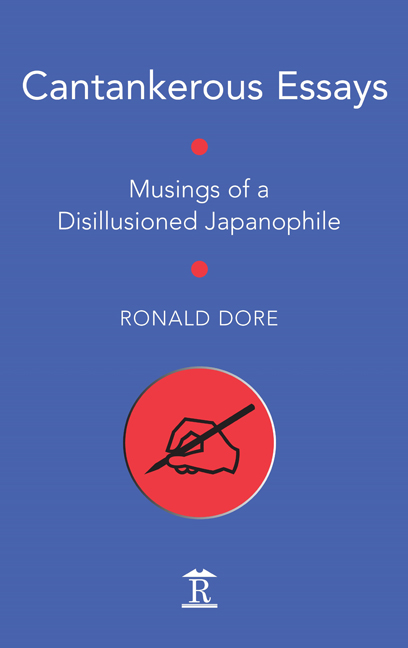Book contents
- Frontmatter
- Dedication
- Contents
- Introductory Musings
- Addendum 23 January 2015
- Chapter 1 THE RETURN OF THE NEAR-NATIVE
- Chapter 2 THE SOCIAL CONDITIONS FOR ECONOMIC PERFORMANCE AND THE PIKETTY BOOM
- Chapter 3 OPMF, CENTRAL BANK CONSERVATISM AND FINANCIAL ECONOMICS
- Chapter 4 JAPAN AND CHINA:COLLISION COURSE
- Chapter 5 JAPAN AND NORTH KOREA
- Chapter 6 A NEW BEGINNING?
- Chapter 7 THE NEW COLD WARS
- Chapter 8 FRIENDS, ALLIES AND ENEMIES
- Chapter 9 HUMAN PROGRESS…?
- Index
- Frontmatter
- Dedication
- Contents
- Introductory Musings
- Addendum 23 January 2015
- Chapter 1 THE RETURN OF THE NEAR-NATIVE
- Chapter 2 THE SOCIAL CONDITIONS FOR ECONOMIC PERFORMANCE AND THE PIKETTY BOOM
- Chapter 3 OPMF, CENTRAL BANK CONSERVATISM AND FINANCIAL ECONOMICS
- Chapter 4 JAPAN AND CHINA:COLLISION COURSE
- Chapter 5 JAPAN AND NORTH KOREA
- Chapter 6 A NEW BEGINNING?
- Chapter 7 THE NEW COLD WARS
- Chapter 8 FRIENDS, ALLIES AND ENEMIES
- Chapter 9 HUMAN PROGRESS…?
- Index
Summary
Temporary the euphoria seemed to have been when Abe sailed effortlessly to victory in the Lower House election of December 2014, emerging with the same overwhelming majority of seats as he had before. If one looks at the detail, though, the election was far from a sweeping endorsement of the direction that the Abe government was taking. Thejisedai no To, which supported Abe but outdid him in its chauvinism and emphasis on defence expenditure, was ingloriously defeated, falling from nineteen to two seats. Meanwhile, the Communist Party, revitalized by its opposition to Collective
Defence, increased its representation from eight to twenty-one seats.
And only 52 per cent of electors bothered to vote. Many of the first-time drop-outs had doubtless once held hopes that the Minshuto might become an effective opposition and had become disappointed.
The result is a kind of stalemate, a policy paralysis. Abe hesitates to push his aggressive foreign policy intentions, but would fiercely resist any retreat from them - e.g. on the symbolic issue of apologies to wartime ‘comfort women’.
A website which keeps track of the details of voting behaviour, etc. (Mediawatch) offers the following diagram to indicate the positions of eight political parties and five major newspapers on Collective Defence as of 19 December, and there has been no perceptible change since then.
The same website acts as a lively discussion forum on the issue, and has had a running poll inviting people to vote. People who read this website are doubtless better informed and concerned than the average Japanese, and this is far from being a normal opinion poll sample, but so far the cumulated number supporting Collective Defence was 3728, with 4736 opposed and 638 who refused to take a clear position.
Meanwhile, there has been no change whatever in Japan's foreign policy position. Japanese diplomats, after much painful effort in Beijing, managed to arrange a meeting between Abe and Xi when they both attended an Asian economic summit in November. As The New York Times reported, the meeting hardly contributed to friendship and goodwill between the two countries:
There were no smiles or banter between Japanese Prime Minister Shinzo Abe and Chinese President Xi Jinping when they shook hands on Monday at the Asia-Pacific Economic Cooperation (APEC) summit in Beijing.
- Type
- Chapter
- Information
- Cantankerous EssaysMusings of a Disillusioned Japanophile, pp. xvii - xxPublisher: Amsterdam University PressPrint publication year: 2015



